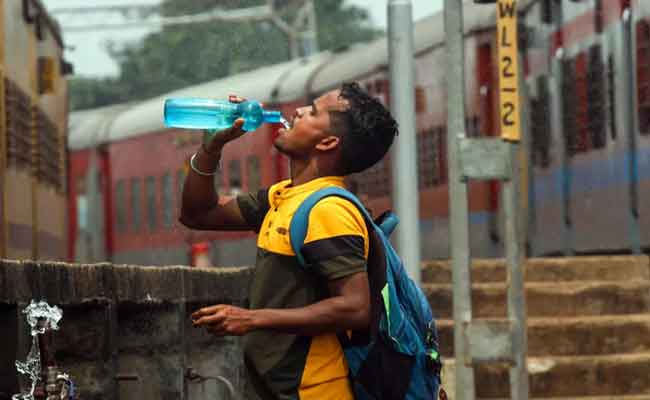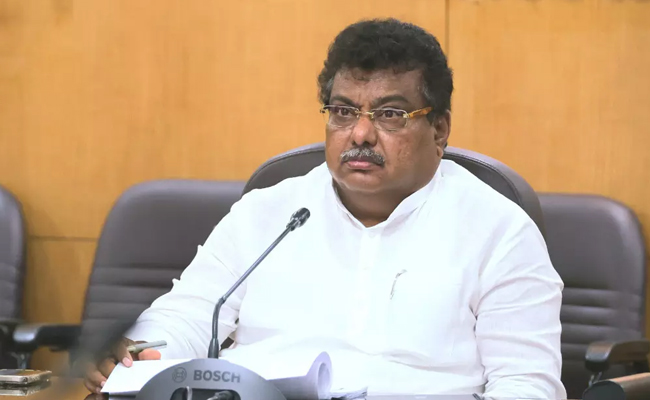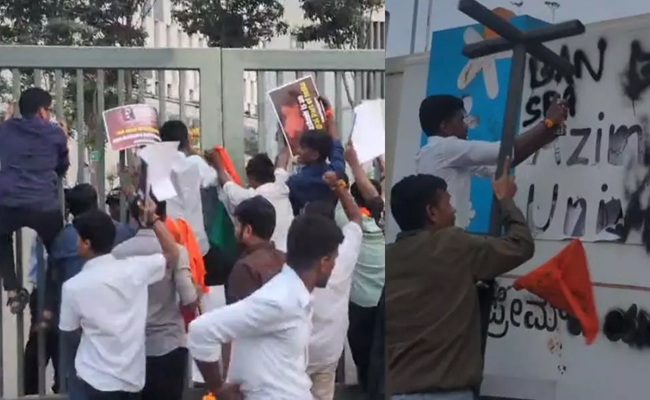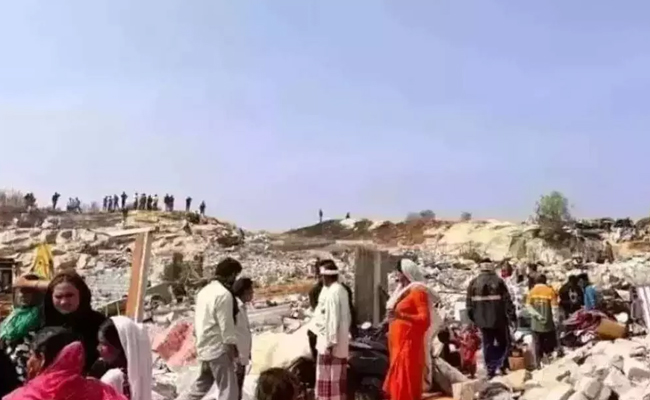Bengaluru (PTI): Voters across four constituencies in Bengaluru, which were among the 14 Lok Sabha seats that went to polls in Karnataka, came out to vote in heat wave-like conditions on Friday.
Bengaluru North, Bengaluru Central, Bengaluru Rural and Bengaluru South are among the 14 constituencies in the state that voted in the first phase today.
“Although Indian Meteorological Department (IMD) has not included Bengaluru in the list of heat wave affected areas, the city does satisfy one of the heat wave conditions – the departure from normal temperatures by at least 4.5 degrees,” said A Prasad, a scientist at IMD Bengaluru.
Bengaluru is categorised under Aw (tropical savanna, winter-dry) by the Koeppen-Geiger classification with average temperature pegged at 22 degrees Celsius. And according to Climate-data.org, the mercury in the city’s warmest month April usually never rises above 32.8 degrees Celsius.
“This April, Bengaluru’s highest temperature has surpassed the normal average almost every day,” said C S Patil, director of IMD Bengaluru.
As per IMD data, Bengaluru’s maximum temperature on the voting day will range between 36.4 and 38.4 degree Celsius.
Given that, IMD scientists said it is best that voters take precautions when they venture out.
“It is best to avoid direct exposure to sunlight between 12 noon and 3pm, when the intensity of the heat will be at its peak. Also, keep drinking water even if you are not thirsty and use an umbrella and sunglasses whenever venturing out. If one feels hot, a damp cloth to the neck will cool down the person to an extent,” said M Rajavel, a scientist at IMD.
Meanwhile, four of the districts that were issued an orange alert by the IMD – Tumkur, Mysuru, Mandya, Chitradurga, Chikkaballapura and Kolar – are also polling on April 26.
Chief Electoral Officer of Karnataka, Manoj Kumar Meena, while briefing about poll preparations had told reporters that the election commission is keeping in mind that many districts would be facing a heat wave on the polling day.
“We are prepared for heat-related medical issues like sunstroke and dehydration. All polling booths will have medical officers and ambulances too. Besides that, each booth will be equipped with a special medical kit,” Meena told reporters.
The unprecedented heat, which the IMD scientists attribute to El Nino effect apart from global warming, had also resulted in a subdued campaigning this election season, especially in the early phases.
“It was so hot that we had to avoid campaigning in the afternoons. We did it in the mornings, and then post 3pm. So yes, our campaigning did suffer because of the heat,” said M B Patil, Congress leader and state minister for large and medium industries and infrastructure development, to PTI.
Let the Truth be known. If you read VB and like VB, please be a VB Supporter and Help us deliver the Truth to one and all.
Bengaluru (PTI): Karnataka Minister M B Patil on Tuesday chaired meetings with industry representatives from the aerospace and defence, machine tools, auto/EV, and green energy sectors to discuss sector growth and government support measures.
The meetings were attended by leading industrialists and their representatives, with some participating virtually.
Speaking on the occasion, the minister for Large and Medium Industries said Karnataka is at the forefront of the country’s aerospace and defence sectors.
He noted that Suzuki and Toyota plan to launch aerial taxi services in Japan by 2028, with Bengaluru-based Sasmos supplying electrical equipment for the project.
Industrialists suggested introducing similar “fly-taxi” services in Karnataka through an appropriate policy, which Patil said would be examined seriously.
The minister highlighted the need to establish testing centres and Common Facility Centres for the aerospace and defence industries and assured that these facilities would be provided.
Suggestions were also made to prepare a comprehensive roadmap for sector growth.
Karnataka has urged the Central Government to approve Defence Corridor projects in the Bengaluru North–Kolar–Chikkaballapur and Dharawada–Vijayapura–Belagavi regions.
Industrialists also suggested a corridor between Bengaluru and Mysuru, Patil said.
He said Karnataka aims to become a hub for defence electronics manufacturing, with plans to establish a 200-acre Defence Electronics Park and a 100-acre Avionics and Sensor Park.
These projects will be implemented once the Special Investment Region is operational, and land availability will not be an issue.
On the machine tools sector, Patil said the industry has recorded an annual turnover of Rs 36,500 crore and is witnessing steady growth.
Large-scale exhibitions have increased demand, and the state must strengthen its capabilities to develop control systems for heavy machinery. One testing unit is already operational in Bengaluru, with another planned for Tumakuru. Expansion of vocational training institutes in industrial areas is also underway.
In the Auto and EV sector, Vision Group members highlighted the need for a network of dry ports and more EV charging stations across the state.
Patil noted that the Tata Group is manufacturing EV buses in Dharawada for nationwide supply. Plans for mini excavator production and export facilitation were also discussed, along with the establishment of a testing facility for two-wheeler EVs.
For the Green Energy sector, the group emphasised the need for a suitable policy on battery-based energy storage and the establishment of data centres.
Patil assured that the government will seriously consider all suggestions and respond positively.





_vb_21.jpeg)